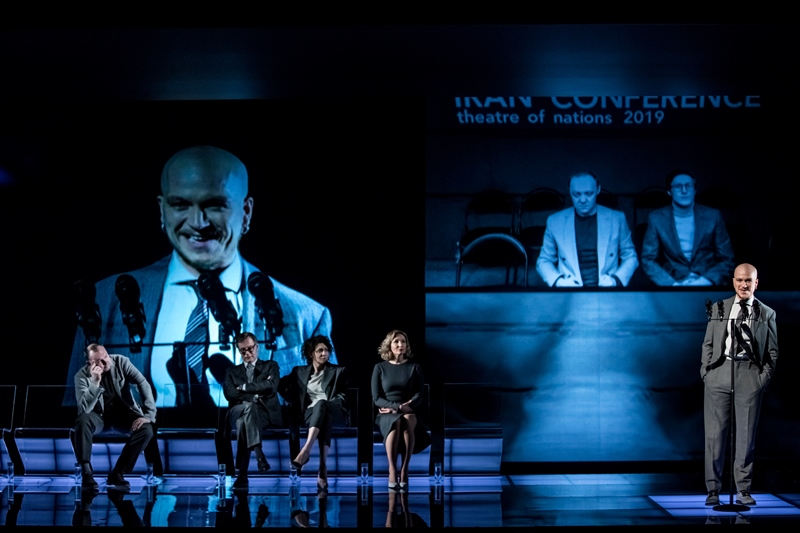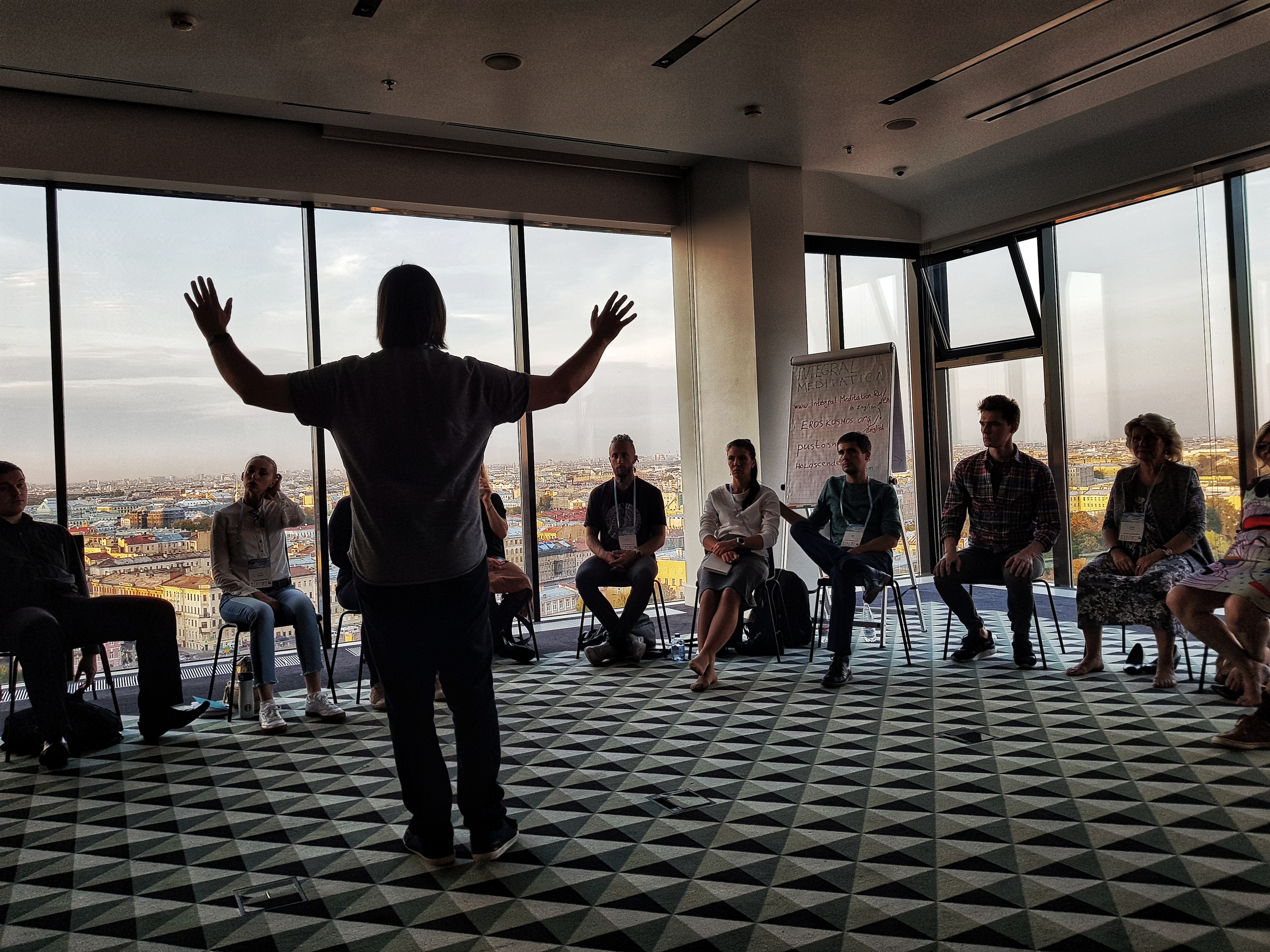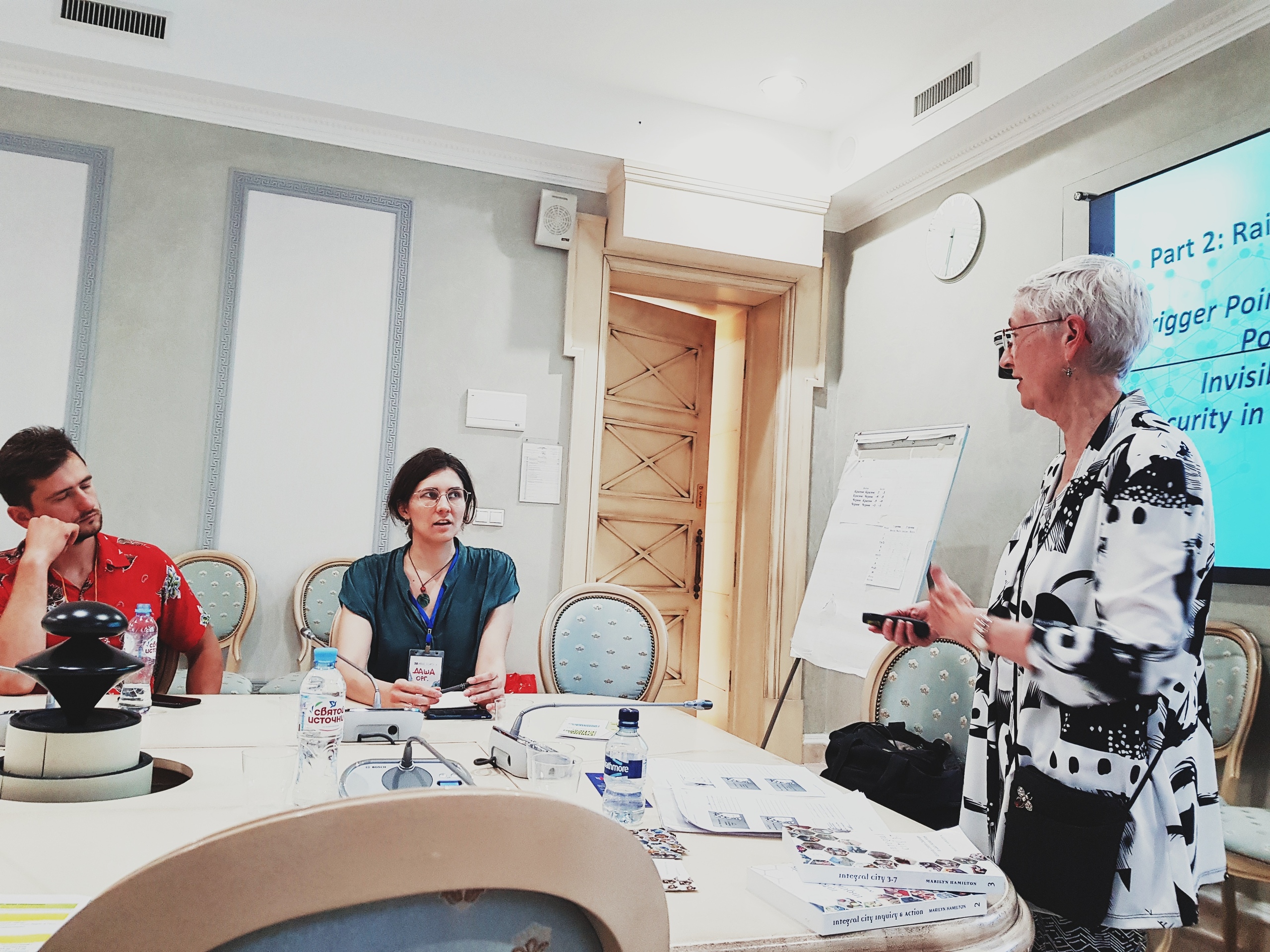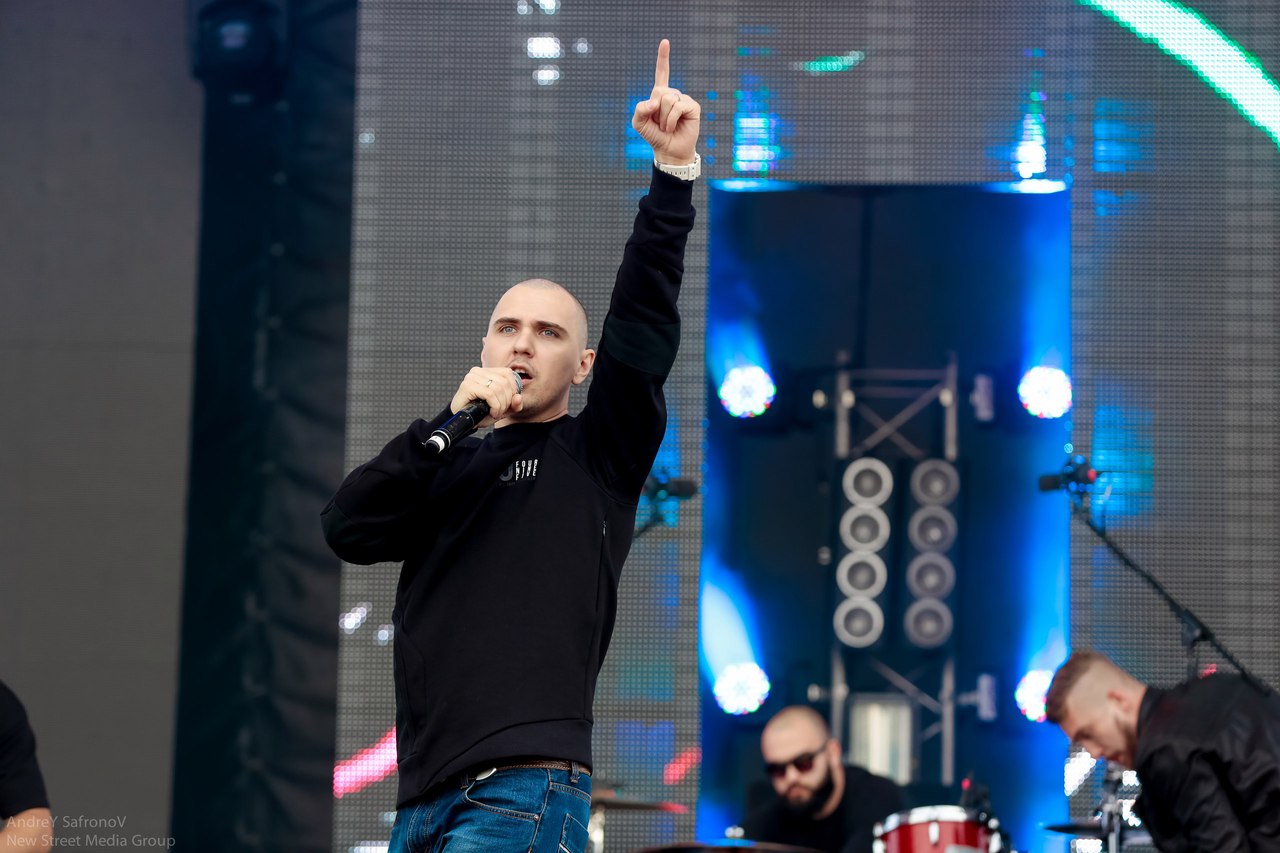The current state of Integral in Russia
There are a few streams of the Integral movement’s emergence and growth in Russia. The spectrum of Russian Integral activities includes publishing, blogging & journal publications, professional activities in psychology & psychotherapy, mindfulness & meditation, coaching, business & leadership (including “Teal organizations“), embodiment, city development, academic activities, and arts.
Psychology & Psychotherapy
It is widely known that the areas of Integral psychology & psychotherapy are among the most well-developed in terms of applying Wilber’s Integral Framework—perhaps, because psychotherapy was initially a key focus of Wilber’s work ever since The Spectrum of Consciousness, his very first book.
In Russia, Integral psychology & psychotherapy is becoming more and more grounded through such postconventional cutting-edge courses as Holoscendence (a meta-paradigm of therapy, self-growth, contemplative development, and multidimensional communication established by Sergey Kupriyanov, MD, PhD in Medicine, a Helsinki-based Russian therapist).

In Russia, Kupriyanov’s Holoscendence courses are assisted by Eugene Pustoshkin and Tatyana Parfenova. There is a number of other specialists who increasingly include Integrally-informed perspectives into their practice, including Dmitry Baranov and Alexander Girshon, leading integrally informed dance therapists.
Transpersonal psychology, through the efforts of Vladimir Maykov and his colleagues, has been grounded in Russia as well. Even though it cannot be said to be based on Wilber’s work in any essential fashion, many people still learn about Integral through the transpersonal psychology program at the Moscow Institute of Psychoanalysis.
The work of the psychotherapist Dinara Badaeva and physician Alina Chumakova should also be mentioned here, who developed their particular Integrally-informed model of vertical development (based on their therapeutic experience and theoretical insights).
Also, they have been the leaders and co-founders of the Moscow Integral Club which has been having regular meetings for several years. Alina Chumakova and her team organized two Integral conferences in Moscow (held in 2010 and 2011).
Publishing
One of the central areas of Integral activities in Russia is concentrated around publishing. This kind of work is crucial in establishing any serious movement, even if one is aimed at “practice“ rather than “theorizing“—especially when it relates to such post-postconventional endeavors as Integral—because books and texts in general are among the leading ways our collective memories of these Integral resonances seem to be imprinted and inherited.
There is really no other way invented to convey complex thought and consciousness—and also directly transform it—other than book and pass it through generations.
If we want to go beyond superficiality and shallow understandings, we have to build new integral cultures of reading.
There are still quite few, if any, Russian authors who write their own books of substance, using the AQAL lens with any serious sophistication, although there were and still are precious authors who demonstrate their own solid second-tier, postformal, dialectical thinking. The main stage now is about translating the main corpus of Integral works to Russian, specifically the works of Ken Wilber, but also Integral works by various other authors.
What’s difficult is that translation of these works to Russian (or any other language) requires inventing and reinventing terms to denote concepts and notions which were either forgotten/repressed (during the atheistic Soviet era, when the ideology strictly repressed heterodoxies, and especially “spiritualistic“ thinking) or never there in the culture, in the first place.
Any novice translator would tend to fail in terms of delivering a proper translation because of simply not knowing the numerous contexts, backgrounds, histories of terminology that are enacted at a regular basis in Integral literature.
Prior to 2000s Wilber’s early and still quite popular book No Boundary was translated (and then republished) in the “Transpersonal Psychology Books“ series published by Vladimir Maykov. Around the same time—through the efforts of Oleg Vavilov (who in 1990s brought Paulo Coelho and Carlos Castaneda to the Russians)—Wilber’s autobiographical book Grace & Grit was published in Russian.
Several years later, in 2013, it was reissued, when the internationally-acclaimed playwright, theatrical director, and filmmaker Ivan Vyrypaev staged an adaptation of Grace & Grit at the Praktika Theater in Moscow. The book quickly gained audience, and many people say that they know Wilber’s work through this soul-touching book.

Meanwhile, Eugene Pustoshkin’s translations of four books by Ken Wilber were published in print: A Brief History of Everything (Wilber wrote a special foreword to this corrected Russian edition); A Theory of Everything (including Wilber’s address to the Russian Integral community); Eye to Eye; and Integral Meditation (which helped to establish an entire paradigm of mindfulness).
2018 marked a major breakthrough in Russian publishing efforts. One of the leading Russian business publishers “Mann, Ivanov and Ferber“ (MIF) became interested in publishing Ken Wilber’s works. A few years earlier they had published Frederic Laloux’s book Reinventing Organizations which introduced the notion of Teal Organizations based on Ken Wilber’s Integral Framework and Spiral Dynamics. The book quickly became a bestseller, and even the head of the largest Russian bank Sberbank announced he wanted to create a “Teal“ organization.
Without a solid theoretical foundation in terms of a well-established intellectual culture it is very unlikely that Integral Consciousness can genuinely take root in any society. Russian cultural memory is best reaccessed via high-quality work with source texts which emit authentic vibrations of Integral vision.
Blogging & Journal Publications
One of the leading sources of information for the past several years has been Eros & Kosmos (http://eroskosmos.org), the primary—and only—Russian online magazine/journal on such topics as Integral, mindfulness, psychology, philosophy and spirituality. E&K was founded by Victor Shiryaev, Gleb Kalinin and Eugene Pustoshkin in 2014. Many people say they connected with these postconventional perspectives through its online publications.
Mindfulness & Meditation
Mindfulness movement has been growing in Russia just as in the rest of the world. Numerous Russian companies now exhibit their interest in training mindfulness-based programs to their staff. Victor Shiryaev, probably the only Russian who has graduated from the JFK University MA in Integral Theory program, has been bringing Shinzen Young’s Basic Mindfulness / Unified Mindfulness approach (as well as his own developments) to Russian-speaking audiences.
As for explicitly Integral orientations, after Eugene Pustoshkin translated the book Integral Meditation, he started to combine Wilber’s insights with psychotechnologies brought forth in Kupriyanov’s Holoscendence as well as with his own explorations of the nature of consciousness.
For several years Eugene has been practicing and teaching (and now co-teaching with Tatyana Parfenova) workshops and entire courses on Integral Meditation. This work uniquely combines the paths of Waking Up, Growing Up, Cleaning Up, and Showing Up, while tapping into profound states of awareness that emerge not just in a secluded introverted practice but also in intersubjective interactions. There are also some other integrally informed mindfulness practitioners who increasingly start to explain their practice using the AQAL Framework.

Business & Teal Organizations
When Frederic Laloux’s book Reinventing Organizations was published in Russian, it stirred local business communities who saw the notion of Teal organizations as a means to escape ineffective organizational structures as well as pathological hierarchies of domination.
Unfortunately, the interest in Teal organization is still mostly superficial at the moment, and people usually do not differentiate between pathological hierarchies of domination and healthy hierarchies (holarchies) of growth. Mostly, people don’t even notice that the foundations of Laloux’s work are AQAL Integral Framework, Spiral Dynamics, and Adult (Vertical) Development. What they focus on is primarily external forms of organizing company’s activities.
The aspect of interiority (subjectivity and intersubjectivity) tends to be overlooked or explored in a flatland way by not acknowledging the depth of development which is necessary for any genuinely second-tier organization to emerge. In this sense, consciousness actually comes first, being (i.e. organizational being) comes second.
It is highly improbable that an avant-garde Teal form of organization can emerge without at least some significant presence of a Teal-altitude consciousness, especially in a society which still has a severely limited access to healthy Orange and Green altitudes. Yet, despite its severe limitations related to the hype factor, the Teal Organizations movement helped both Integral and SD circles a great deal by bringing more outside awareness.
Read more on this state of affairs in an Integral Leadership Review article “Transformations on the Path to Really Teal & Turquoise Organizations” here.
St. Petersburg Coaching Institute’s leaders have done a great deal in promoting the Teal Organizations trend and helping Integral Business to emerge at least as a notion in Russia. They also promote the ideas of vertical development of leaders.
As for Spiral Dynamics, I should mention that it has taken a root as a part of Integral movement. A crucial role in promoting the Spiral Dynamics framework (within an integrally-informed context) in Russia has been played by Anatoly Balyaev for more than a decade.
Embodiment
Mark Walsh’s embodiment courses (EFC) took a good rooting in Moscow. At the recent Russian online Embodiment conference, panel discussions on Integral Embodiment, Vertical Growth & Embodiment and also Spiral Dynamics were held. In terms of body / somatic / dance psychotherapy one should also note Alexander Girshon, who is a leading authority in authentic movement and dance therapy in Russia (being Integrally informed, he co-authored a book on Integrative Dance Therapy).
In overall, Integral movement, and especially Integral psychotherapy, are very aware of the issues of embodiment, trauma, and various body phenomenologies, so the area of embodiment is one of the fields where AQAL-based awareness can do miracles.
Integral City Development
The publication of Marilyn Hamilton’s book Integral City, as well as skillful leadership exhibited by Lev Gordon helped in establishing an all-Russian Living Cities movement. At first it was a kind of a festival, but later on it turned into a series of systematic activities aimed at bringing more wholeness towards the understanding and co-enactment of city development.
Marilyn Hamilton has visited different cities in Russia (including Moscow, Izhevsk, and Nizhniy Novgorod) a few times, read lectures and led workshops there. She is a charismatic speaker who always brought forth both cognitive and heart-based insights in common audiences who came to listen about recent developments in urban practices.
At this moment, the Living Cities initiative is represented by a core activity group as well as a loose network of practitioners who come from multiple sectors of society. They conduct activities both online and offline, and now we can speak of Living Cities as not only an all-Russian but also an international network of people and events.

Academia
If one does a quick search of the Russian scholarly Internet, one could see that over the past decade or so there were a number of academic articles and even books published where Wilber’s Integral Framework is mentioned. For instance, the Institute of Philosophy at the Russian Academy of Sciences published the book The Philosophy of Transdisciplinarity (by Larisa Kiyaschenko and Viacheslav Moiseev) in 2009. It explicitly explored works by such authors as Ken Wilber and late Russ Volckmann (the founder of Integral Leadership Review).
Art
Art has always served as an avantgarde of consciousness evolution in societies. Artists’ works can be seen as sometimes symbolic and sometimes literal embodiment of innovative trends of awareness intensification and spiritual transformation. Ken Wilber’s Integral vision has attracted a lot of interest from artists of diverse field, especially since he explicitly outlines an Integral theory of art and literary theory.
In Russia, probably the most important figure in terms of Integral Art is Ivan Vyrypaev (also spelled: Iwan Wyrypaev), who is an internationally-acclaimed playwright, theatrical director, and film maker. He filmed such beautiful movies as Euphoria, Kislorod, Dehli Dance, and his most recent film Salvation. But he is most known for his plays which are staged all over Russia and in many Western countries.
What is important to know is that Ivan has been adopting Wilber’s Integral ideas. His plays implicitly and sometimes explicitly refer to such themes as states and stages of consciousness, perspectives, cultural wars. When Ivan became the art director of the Praktika Theater (Moscow), he organized an Integral Theory course for actors and directors (it was taught by Victor Shiryaev, MA in Integral Theory).
His recent play The Iran Conference has been staged at the National Theater in Moscow with a cast of star actors. It became a major success. And, as mentioned above, in 2013 he made a stage adaptation of Grace & Grit.
Another influential figure, this time coming from the Russian underground hip hop scene, is Ilya “MC 1.8” Kuznetsov. Ilya was among the founders of this rap scene in Russia in 1990s. In 2010s, as a result of existential and spiritual crisis, he re-emerged as an explicitly Integrally oriented artist-musician. In his new album 4Q (in Russian: 4K) he explores his existential journey through various dimensions of human life, which is essentially an attempt at an all-quadrant self-reflection.

There are also other young poets and artists who are inspired by Ken Wilber’s vision, one of them is Kaikhan Salakhov. Kaikhan has been working on what he calls “cosmocybernetic art.” While he still works on refining and deepening his fundamental style, his paintings already convey a significant degree of spiritual awareness.
Conclusion
A consummate exploration of the current state of Integral in the Russian Federation as well as other post-Soviet countries would require taking a look into a cultural-historical background of the Russian-speaking society, going back at least into 19th century. Without taking such a historical (and trans-historical) metaperspective it is impossible to gain a comprehensive Integral understanding of the complex dynamics that play in the emerging of Integral Consciousness.
In this presentation we focused mainly on explicitly AQAL-based strands of growing Integral Consciousness in such areas as publishing, psychology, psychotherapy, coaching, business, academia, etc.; we apologize to all whose names we failed to mention. It doesn’t diminish the importance of their work. Some important events were also not mentioned which all led to the emergence of the Russian Integral scene as it is today in its actuality and also in its powerful potentiality.
For further reference on the state and history of Integral enterprise in Russia please see 2016 Special Russia Issue of Integral Leadership.
The insights above were given by Russian clinical psychologist and AQAL Integral therapist/practitioner Eugene Pushtoshkin, who is also a Holoscendence & Integral Meditation teacher and Russian translator of 8 books by Ken Wilber.
IEC 2020 Workshop:
Integral Meditation in Holoscendence
In this revolutionary breakthrough process, already tested with virtually thousands of people of different professional and cultural backgrounds, you will experientially learn how to use multiple dimensions of consciousness (including that of pristine primordial awareness) to foster Waking Up, Growing Up, Cleaning Up, and Showing Up in an profoundly integral and viscerally-felt fashion.
Integral Meditation is a set of powerful (and virtually unknown, though sometimes treasured in secret inner traditions) contemplative techniques which allows you to discern, objectify, and unify numerous processes within:
• your integral embodiment (including the full range of subtle energies);
• your consciousness (including gross to subtle to causal to nondual states and the full spectrum of stages up to third-tier potentials);
• your intersubjectivity and interpersonal/relational intelligence (radically deepening your skillful engagement with the We dimension);
• and your social-environmental embeddedness (raising your capacity to interact with what is known as “places of power” as well as gaining experiential insights into various living chronotopes, or space-time constellations, as well as the total-unity and interconnectedness of universal existence).
Integral Meditation unfolds in a seamless unity with the spacious and luminous container of Holoscendence. It is an integral space of being energetically present while embracing both local & nonlocal, temporal & timeless.
IEC 2020 Presentation:
Post-Soviet Integral Psychotechnologies
In his presentation at the Integral European Conference 2020, Eugene will discuss how Soviet & Russian consciousness research of non-ordinary states generated advanced methods for holistic transformation, psychotherapy, meditation, & multidimensional communication.
In USSR/Russia there was a period of especially intensive consciousness exploration. A number of researchers studied altered states of consciousness (ASC) & farther reaches of human potential. St. Petersburg around 1980–1990s served as an important chronotope for cutting-edge consciousness research.
Other groups of researchers who studied different aspects of consciousness / awareness capacities were active as well. The overall network of scholars-practitioners was focused on studying metanormal capacities, non-ordinary states, bioenergies, & psychotechnologies.
A substrand of that research wave included the development of deconcentration techniques, which—when used exclusively or together with concentration—can generate a plethora of ASC that can be used in psychotherapy & healing, applied industrial and sports psychology (e.g., training air traffic controllers & free divers), arts, education, contemplative spirituality, consciousness practices, etc.
Several practitioners developed deconcentration methods (often independently of each other), generating innovative paradigmatic psychotechnologies. In Holoscendence these know-hows are integrated with Wilber’s AQAL Integral psychology, forming a meta-method of integration & transformation.
